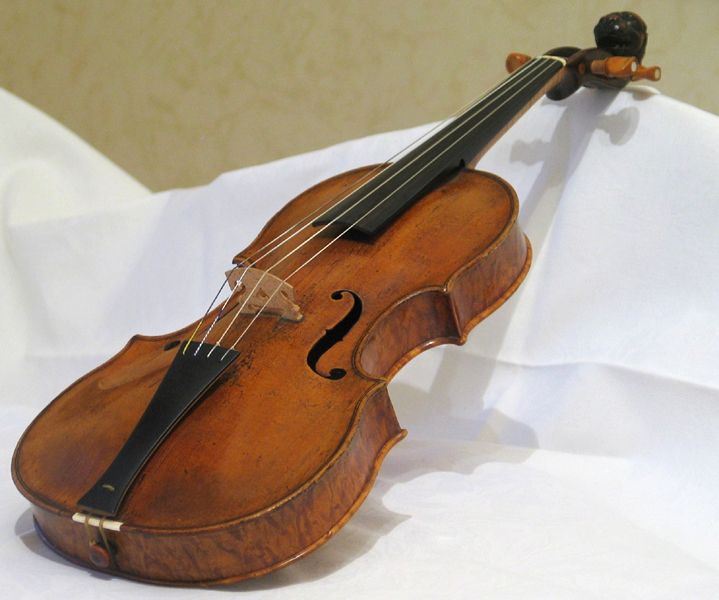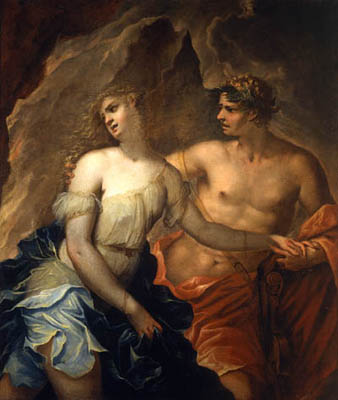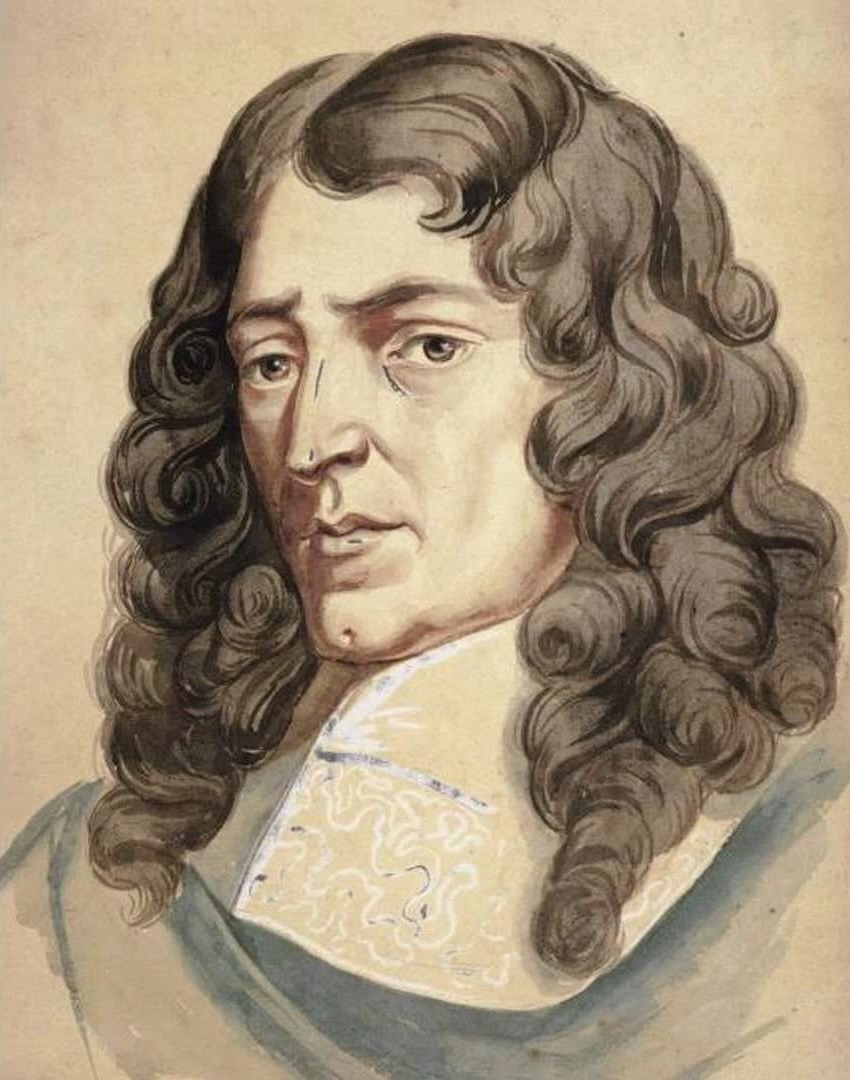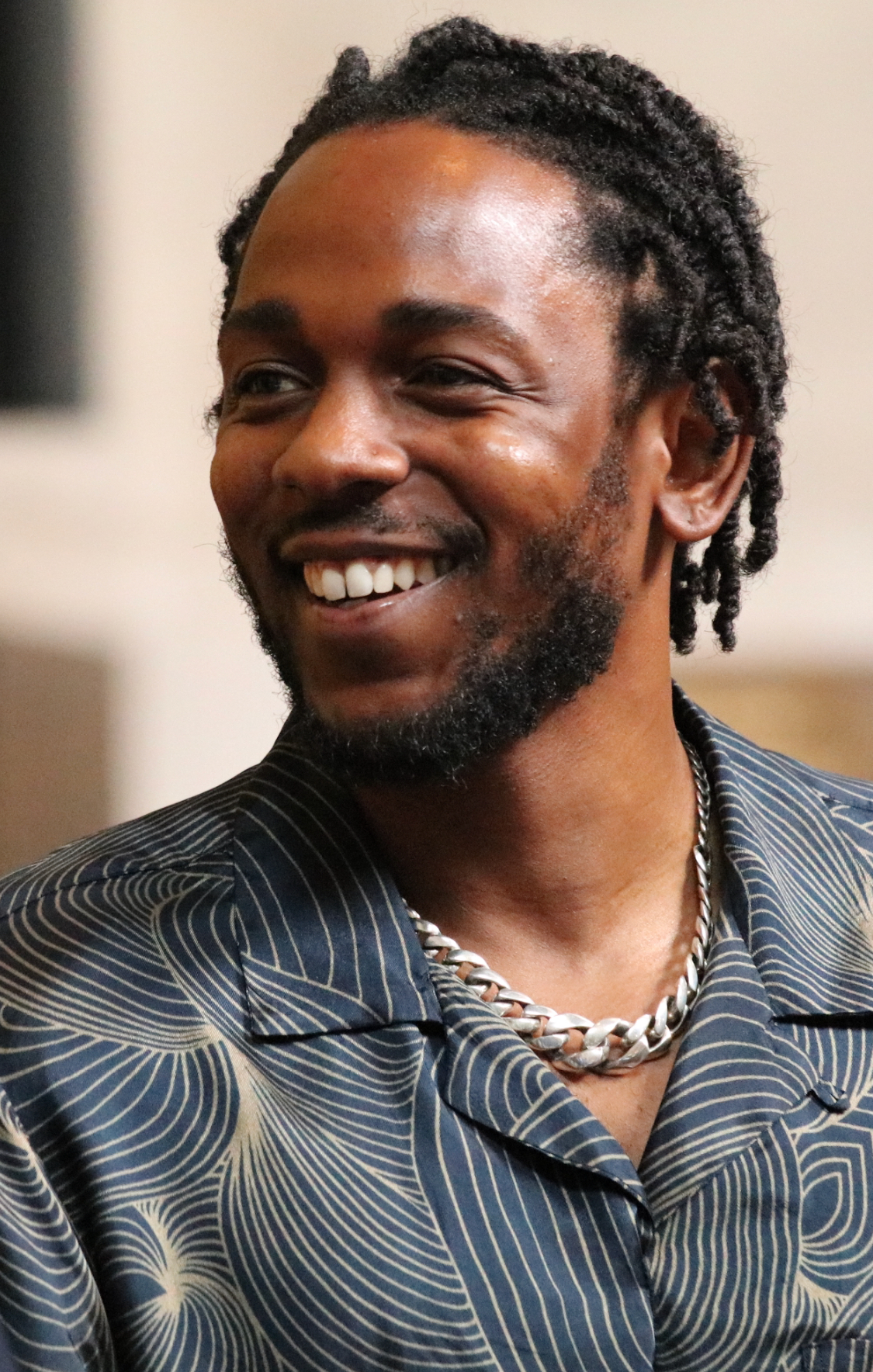|
Robert Mealy
Robert Mealy is a performer and teacher of baroque violin. He holds a joint position at the Yale School of Music and the Department of Music of Yale University, where he directs the Yale Collegium Musicum and teaches classes in musical rhetoric and historically-informed performance. He has recorded over 50 CDs of early music, ranging from Hildegard of Bingen with Sequentia, to Renaissance consorts with the Boston Camerata, to Rameau operas with Les Arts Florissants. At home in New York, he is a frequent leader and soloist with the New York Collegium, Early Music New York, the Clarion Music Society, and the ARTEK early music ensemble. Mealy began exploring early music in high school, first with the collegium musicum of the University of California, Berkeley and then with the baroque orchestra at the Royal College of Music in London. While still an undergraduate at Harvard College, he was asked to join the Canadian baroque orchestra Tafelmusik. Since then, he has recorded and tou ... [...More Info...] [...Related Items...] OR: [Wikipedia] [Google] [Baidu] |
Baroque Violin
A Baroque violin is a violin set up in the manner of the baroque period of music. The term includes original instruments which have survived unmodified since the Baroque period, as well as later instruments adjusted to the baroque setup, and modern replicas. Baroque violins have become relatively common in recent decades thanks to historically informed performance, with violinists returning to older models of instrument to achieve an authentic sound. The differences between a Baroque violin and a modern instrument include the size and nature of the neck, fingerboard, bridge, bass bar, and tailpiece. Baroque violins are almost always fitted with gut strings, as opposed to the more common metal and synthetic strings on a modern instrument, and played with a bow made on the baroque model rather than the modern Tourte bow. Baroque violins are not fitted with a chin rest and are played without a shoulder rest. Characteristics The development of the violin started in the 16th cen ... [...More Info...] [...Related Items...] OR: [Wikipedia] [Google] [Baidu] |
Tafelmusik
Tafelmusik (German: literally, "table-music") is a term used since the mid-16th century for music played at feasts and banquets. Table music could be either instrumental, vocal, or both. As might be expected, it was often of a somewhat lighter character than music for other occasions. In solemn banquets, starting with wedding dinners, the presence of singers and instrumentalists is customary and almost obligatory. Origin The custom of accompanying banquets and symposia with music has been attested by ancient Egypt Ancient Egypt () was a cradle of civilization concentrated along the lower reaches of the Nile River in Northeast Africa. It emerged from prehistoric Egypt around 3150BC (according to conventional Egyptian chronology), when Upper and Lower E ...ian, Hebrew, Greek and the Romans in Roman temples. The term was often used as a title for collections of music, some of which were intended to be used at banquets as a musical background, or during outdoor events. Th ... [...More Info...] [...Related Items...] OR: [Wikipedia] [Google] [Baidu] |
Agostino Steffani
Agostino Steffani (25 July 165412 February 1728) was an Italian bishop, polymath, diplomat and composer. Education Steffani was born at Castelfranco Veneto on 25 July 1654. As a boy he was admitted as a chorister at San Marco, Venice. Steffani excelled as a choirboy and was asked to sing at important occasions. Aged 11 and 12 he sang opera in Venice. Aged 13 Steffani received patronage and he moved to Munich. Steffani's education was completed at the expense of Ferdinand Maria, Elector of Bavaria, who appointed him ''Churfürstlicher Kammer- und Hofmusikus'' and granted him a liberal salary. After receiving instruction from Johann Kaspar Kerll, in whose charge he lived, Steffani was sent in 1673 to study in Rome, where Ercole Bernabei was his master, and among other works he composed six motets, the original manuscripts of which are now in the Fitzwilliam Museum at Cambridge. On his return to Munich with Bernabei in 1674, Steffani published his first work, ''Psalmodia ve ... [...More Info...] [...Related Items...] OR: [Wikipedia] [Google] [Baidu] |
Thésée (Lully)
''Thésée'' (; ) is a ''tragédie en musique'', an early type of French opera, in a prologue and five acts with music by Jean-Baptiste Lully and a libretto by Philippe Quinault based on Ovid's ''Metamorphoses''. It was first performed on 11 January 1675Although the original libretto states the date of the premiere as 10 January, most sources give it as 11 January and the listing of performances o''Thesée''at ''césar'' gives the date as 12 January. by the Paris Opera for the royal court at the Château de Saint-Germain-en-Laye and was first performed in public in April at the Théâtre du Palais-Royal in Paris. The plot centres around a love triangle: Aegeus wants to marry his ward, princess Aegle, while the sorceress Medea wishes to marry the young warrior Theseus, but Theseus and Aegle love each other. Medea attempts to force the lovers to renounce each other: first by using her magic to bring Aegle to a place of torment, then by convincing Aegeus to have Theseus killed as a ... [...More Info...] [...Related Items...] OR: [Wikipedia] [Google] [Baidu] |
Psyché (opera)
''Psyché'' is an opera (''tragédie lyrique'') in a prologue and five acts composed by Jean-Baptiste Lully to a libretto by Thomas Corneille (adapted from Molière's original play for which Lully had composed the intermèdes). Based on the love story of Cupid and Psyche, ''Psyché'' was premiered on April 19, 1678 by the Académie Royale de Musique at the Théâtre du Palais-Royal in Paris. Background According to the '' Mercure Galant'', the opera ''Psyché'' was composed in three weeks; libretto, score and all. Although it is impossible to verify the truth of this statement, there is every reason to believe that Lully was in a hurry when writing this opera. In effect, the opera reuses the ''intermèdes'' from Molière's play. Since these ''intermèdes'' had met with such spectacular success seven years earlier, Lully must have felt that given his lack of time, he could at the very least attract a crowd with the promise of reviving the ''plainte italienne'' and the fi ... [...More Info...] [...Related Items...] OR: [Wikipedia] [Google] [Baidu] |
Jean-Baptiste Lully
Jean-Baptiste Lully ( – 22 March 1687) was a French composer, dancer and instrumentalist of Italian birth, who is considered a master of the French Baroque music style. Best known for his operas, he spent most of his life working in the court of Louis XIV of France and became a French citizenship, subject in 1661. He was a close friend of the playwright Molière, with whom he collaborated on numerous ''comédie-ballets'', including ''L'Amour médecin'', ''George Dandin ou le Mari confondu'', ''Monsieur de Pourceaugnac'', ''Psyché (play), Psyché'' and his best known work, ''Le Bourgeois gentilhomme''. Biography Lully was born on November 28 or 29, 1632, in Florence, Grand Duchy of Tuscany, to Lorenzo Lulli and Caterina Del Sera, a Tuscan family of millers. His general education and his musical training during his youth in Florence remain uncertain, but his adult handwriting suggests that he manipulated a quill pen with ease. He used to say that a Franciscan friar gave him his ... [...More Info...] [...Related Items...] OR: [Wikipedia] [Google] [Baidu] |
La Descente D'Orphée Aux Enfers
''La descente d'Orphée aux enfers'' H. Wiley Hitchcock, H.488 (English: ''The Descent of Orpheus to the Underworld'') is an incomplete chamber opera in two acts by the French composer Marc-Antoine Charpentier. It was probably composed in early 1686 and performed either in the apartments of the Louis, Dauphin of France (1661-1711), Dauphin that spring or at Fontainebleau in the autumn. Charpentier himself sang the title role, joined by musicians of Marie de Lorraine, Duchess of Guise, Mademoiselle de Guise and members of the Dauphin's little ensemble; it was Charpentier's last appearance with this ensemble. The libretto, whose author is unknown, is based on the myth of Orpheus as told by Ovid in Book 10 of the ''Metamorphoses''. It is debatable whether the opera as it survives in the manuscript is complete or not. The musicologist H. Wiley Hitchcock believes Charpentier may have planned (and composed) a third, concluding act. The opera is not to be confused with an earlier work ... [...More Info...] [...Related Items...] OR: [Wikipedia] [Google] [Baidu] |
Marc-Antoine Charpentier
Marc-Antoine Charpentier (; 1643 – 24 February 1704) was a French Baroque composer during the reign of Louis XIV. One of his most famous works is the main theme from the prelude of his ''Te Deum'' ''H.146, Marche en rondeau''. This theme is still used today as a fanfare during television broadcasts of the Eurovision Network and the European Broadcasting Union. Marc-Antoine Charpentier dominated the Baroque musical scene in seventeenth century France because of the quality of his prolific output. He mastered all genres, and his skill in writing sacred vocal music was especially hailed by his contemporaries. He began his career by going to Italy, where he fell under the influence of Giacomo Carissimi as well as other Italian composers, perhaps Domenico Mazzocchi. He would remain marked by the Italian style and become the only one with Jean-Joseph Cassanéa de Mondonville in France to approach the oratorio. In 1670, he became a master of music (composer and singer) in the se ... [...More Info...] [...Related Items...] OR: [Wikipedia] [Google] [Baidu] |
Grammy
The Grammy Awards, stylized as GRAMMY, and often referred to as The Grammys, are awards presented by The Recording Academy of the United States to recognize outstanding achievements in music. They are regarded by many as the most prestigious and significant awards in the music industry in the United States, and thus the show is frequently called "music's biggest night". The trophy depicts a gilded gramophone, and the original idea was to call them the "Gramophone Awards". The Grammys are the first of the Big Three networks' major music awards held annually, and are considered one of the four major annual American entertainment awards with the Academy Awards (for films), the Emmy Awards (for television), and the Tony Awards (for theater). The first Grammy Awards ceremony was held on May 4, 1959, to honor the musical accomplishments of performers for the year 1958. After the 2011 ceremony, the Recording Academy overhauled many Grammy Award categories for 2012. The 67th Annua ... [...More Info...] [...Related Items...] OR: [Wikipedia] [Google] [Baidu] |
Boston Early Music Festival
The Boston Early Music Festival (BEMF) is a non-profit organization founded in 1980 in Boston, Massachusetts, to promote historical music performance. It arranges an annual Boston and New York City concert series, produces opera recordings, and organizes a biennial week-long Festival and Exhibition in Boston. History One of BEMF's goals is to bring attention to lesser-known Baroque operas, which are performed with period singing, orchestral performance, costuming, dance and staging. The centerpiece of the biennial festivals is a fully staged Baroque opera production. BEMF operas are led by Artistic Directors Paul O'Dette and Stephen Stubbs, Orchestra Director Robert Mealy, and Opera Director Gilbert Blin. During each Festival, concerts are presented daily from morning until late at night. They are performed by an array of musicians, ranging from the established to the emerging, and allow for unique collaborations and programs by performers assembled for the Festival week ... [...More Info...] [...Related Items...] OR: [Wikipedia] [Google] [Baidu] |
Late Show With David Letterman
''Late Show with David Letterman'' is an American late-night talk show hosted by David Letterman on CBS, the first iteration of the ''Late Show'' franchise. The show debuted on August 30, 1993, and was produced by Letterman's production company, Worldwide Pants, and CBS Television Studios. The show's music director and leader of the house band, the CBS Orchestra, was Paul Shaffer. The head writer was Matt Roberts and the announcer was originally Bill Wendell, then Alan Kalter. In most American markets the show aired from 11:35 p.m. to 12:37 a.m. Eastern and Pacific Time, and recorded Monday to Wednesdays at 4:30 p.m., and Thursdays at 3:30 p.m. and 6:00 p.m. Eastern Time. The second Thursday episode usually aired on Friday of that week. In 2002, ''Late Show with David Letterman'' was ranked No. 7 on ''TV Guide''s 50 Greatest TV Shows of All Time. As host of both ''Late Night'' and ''Late Show'' for more than 30 years, Letterman surpass ... [...More Info...] [...Related Items...] OR: [Wikipedia] [Google] [Baidu] |
Renée Fleming
Renée Lynn Fleming (born February 14, 1959) is an American soprano and actress, known for performances in opera, concerts, recordings, theater, film, and at major public occasions. A recipient of the National Medal of Arts, Fleming has been nominated for 18 Grammy Awards and has won five times. In December 2023, she was one of five recipients of the Kennedy Center Honors. Other notable honors have included the Crystal Award from the World Economic Forum in Davos, the Chevalier de la Légion d'Honneur from the French government, Germany's Order of Merit of the Federal Republic of Germany, Cross of the Order of Merit, Sweden's Polar Music Prize and honorary membership in England's Royal Academy of Music. Unusual among artists whose careers began in opera, Fleming has achieved name recognition beyond the classical music world. Fleming has a full lyric soprano voice.Anthony Tommasini, Tommasini, Anthony"For a Wary Soprano, Slow and Steady Wins the Race" ''The New York Times'', Sept ... [...More Info...] [...Related Items...] OR: [Wikipedia] [Google] [Baidu] |






